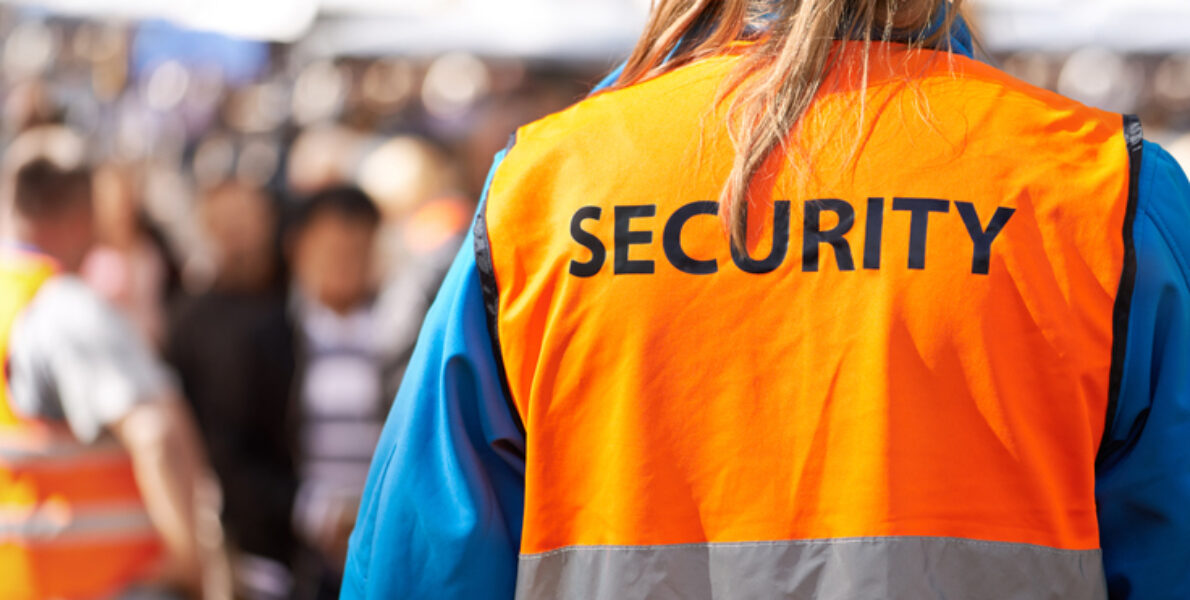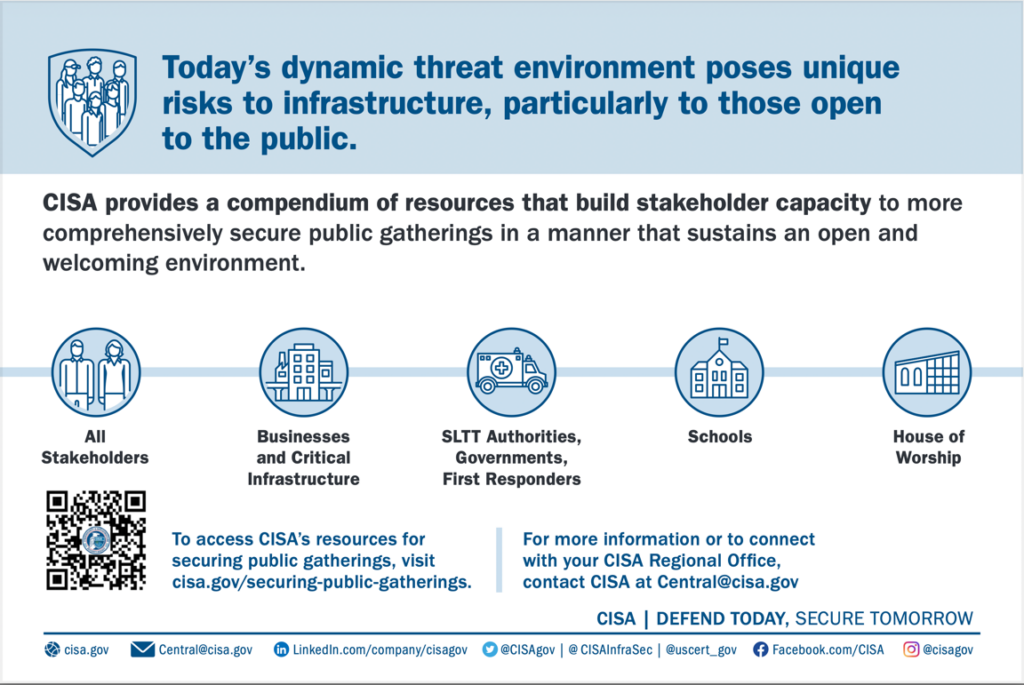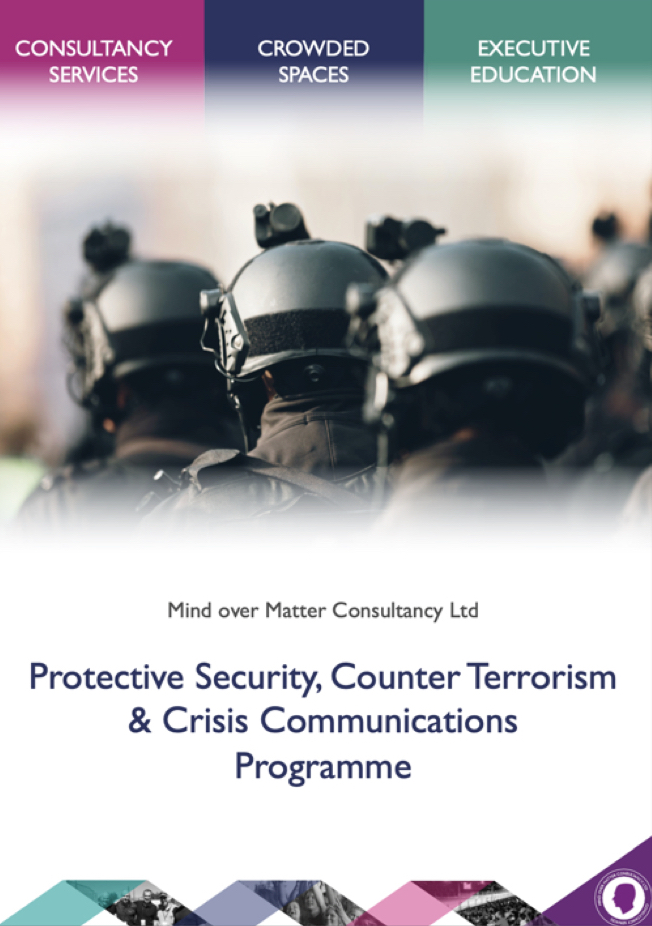About the author: Pete Dalton MSyl is a UK based international major events and protective security consultant.
As a former specialist UK Police Senior Office, he was the Head of Department responsible for Protective Security. He maintained a range of specialist command accreditations and managed, planned and commanded major operations and events throughout his service. Pete is now engaged in a diverse range of projects supporting major international sporting and crowded space events, including delivering the Interpol International Safety & Security Training Programme to police commanders from 60 countries.
In January we published an article relating to the forthcoming ‘Protect Duty’ and the impact upon event planning within the UK. Following on from this we will now consider security planning considerations for events within the USA and a link to the USA SAFETY Act considerations. The UK & USA enjoy a ‘special relationship’, long established through government, security, culture and shared ideologies. This includes a strong history in the planning and management of large events at an international, federal and state level.
What is the SAFETY Act?
The Support Anti-terrorism by Fostering Effective Technology Act was passed as part of the Homeland Security Act in 2002. The SAFETY Act was created in response to the devastating terrorist attacks on Sept. 11, 2001. The concern was that manufacturers and sellers of anti-terrorism products and services would be reluctant to deploy technologies in civilian contexts for fear of being held liable for damages resulting from a terrorist attack.
The SAFETY Act created liability limitations for claims resulting from an act of terrorism where Qualified Anti-Terrorism Technologies (QATTs) have been deployed. The Act applies to a broad range of technologies, including products, services, and software, or combinations thereof.
Safety, Security and Service
As we return from COVID-19 restrictions it is essential that event organisers and planning teams work together to minimise the risks to safety, security and service at events. The consideration of safety, security and service as three interdependent and linked pillars for major international sporting events is enshrined in the Council of Europe Convention (The Saint-Denis Convention). These principles form a requirement on host countries on applying to host major tournaments such as the Olympic Games or Football World Cup.
Looking ahead the USA in a strategic bid with Canada and Mexico will be hosting the FIFA Football World cup 2026. Following closely behind will be the hosting of the Los Angeles Olympic Games in 2028.
What's causing unsafe events in the US?
Through the hosting of such events and the successful delivery of a wide genre of sporting, cultural and festival events at scale, the USA can rightly be considered as an experienced host nation.
However, threats to events remain real and enduring, there are numerous examples of series incidents at events over recent years where safety and security have been compromised. Some of these have attracted international media attention.
Travis Scott- Astroworld Concert in November 2021
A concert in Houston, Texas at the Astroworld venue, headlined by Travis Scott led to significant security breaches at the access control points. Later in the event as the artist performed crowd surges led to 10 fatalities, numerous serious injuries and the declaration of a ‘mass casualty incident’.
Security breaches at perimeters have been an emerging international theme since the release from COVID-19. Occurrences have taken place in Cameron at the Africa Cup of Nations (Jan 2022), The O2 in London (Dec 2021) and at the Euro 2020 Final at Wembley Stadium in July 2021.
Effective planning by organisers to deploy layers of security, incorporating personnel, physical and technical measures are important. The ability to deploy perimeters, effective crowd management options and appropriate access control measures are key principles of any security plan.
Resources for Event Planners
As experienced within the UK, the threat of terrorism towards events and publicly accessible locations remains a key concern within the USA. The USA Department of Homeland Security (DHS) provides regular National Terrorism Advisory System (NTAS) reports that update on key national threats. These are a useful starting point for organisers in developing a security threat assessment for their event. Consultation and support from federal, State, Territorial and Tribal Law Enforcement and security agencies should be sought in establishing threat assessments that underpin flexible, proportionate and scalable security plans.
Event planners and organisers in the USA can access a wealth of freely available information to support in safety & security planning for events and public places. The Cybersecurity and infrastructure Security Agency is an excellent source to review thematic guidance.
Following on from the 9-11 attacks, specific legislation was passed to support in the Support anti-Terrorism by Fostering Effective Technologies Act (SAFETY ACT) of 2002. This act is supported by an implementation programme within the DHS through the Office of SAFETY Act Implementation.
Through this legislation event organisers and venue organisers can work with the DHS to apply for SAFETY Act:
- Certification
- Designation
The SAFETY Act process has been adopted widely, a broad range of technical mitigation measures have been designated and certified, including (not exhaustive):
- Threat and vulnerability assessment services
- Detection systems
- Blast mitigation materials
- Screening services
- Sensors and sensor integration
- First responder technologies
- Cyber security technologies
The SAFETY Act 2022 legislation applies equally to event & contingency plans as well as physical measures and technology.
Application of the Safety Act principles were covered at the recent USA Academy of Amusement Risk Management Safety & Security Conference (AARMSS 2022), supported by the author and USA AARMSS Faculty colleagues. This event was attended by security professionals from across the USA operating within the major events and amusement industry.
What security experts say about the SAFETY Act
“The SAFETY Act is a powerful tool for industry because it not only affords significant risk management benefits (e.g., capping exposure to extraordinarily large third-party liability following an act of terrorism), but it also identifies best practices in event security operations that may not be readily available otherwise. For the most part, the event security industry is not regulated, and while that is a good thing in some regards, it means there are not clear standards that event organizers can lean on when planning their events. As a result, you have an industry with a wide array of security measures being implemented, some very effective and some not. For event organizers looking toward guidance or a standard, the SAFETY Act is an excellent resource providing guidance on all aspects of event security operations ranging from the way patrons should be screened, how you should accept deliveries, and what your unified command centre should look like. I believe the new UK legislation will help industry in the same way as SAFETY Act has helped industry in the states.”
Akmal Ali J.D. -Founder and CEO Aluma Risk (Akmal is the former Deputy Director of the SAFETY Act Office with the U.S. Department of Homeland Security).
“The roadmap of the SAFETY Act award process coupled with the expertise of physical security professionals provides event organizers with a science-based approach to making our event spaces safer and more secure”.
Matt Nebel – Director of Secure Design/Principal, Walter P Moore
The USA SAFETY Act and the forthcoming UK Protect Duty provide a legislative structure for international event planners to develop plans to mitigate, minimise and manage terrorist threats to events and venues. In engaging proactively with such legislation and demonstrating a proactive approach to security planning, risks to events can be more effectively managed. This brings direct benefits to the safety, security and service experience of spectators and visitors. In addition, successful adoption of such principles reduces potential risks of litigation following an incident and can contribute towards reduced insurance liabilities for events.
In summary, event organisers have a responsibility to effectively consider risks, develop plans and contingencies and to work together to plan events. Venues should consider Counter Terrorism & Protective Security and integrate their policies, strategies, plans and procedures.
If readers would like further information on this article or would like to consider the specialist consultancy services available, please contact Pete Dalton or Prof Chris Kemp at Mind over Matter Consultancy.
Equally, OnePlan can support in providing a complete system to support collaborative planning and event management. OnePlan has been widely adopted by several USA organisations and venues. The collaborative event planning platform can support in all aspects of event delivery, including integrated plans catering for crowded space management, physical, personnel and technological measures.
















